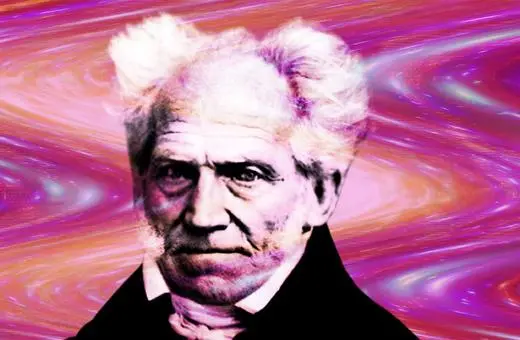Belief in God is on the rise among young people in the West. As many seek meaning beyond digital life and consumer culture, old theologies are in vogue. But Iris Murdoch warned against seeing religious faith as the only route to a spiritual life. In this article, Miles Leeson argues for Murdoch’s third way—grounded in transcendence without dogma—as a solution to the West’s spiritual crisis.
News stories focusing on the rise of religious belief, and crucially religious activity, in the UK are perhaps not surprising. The think tank Theos recently highlighted an article in The Times suggesting that those in Gen Z were less likely to identify as atheists than their parents, and the most recent YouGov data show that belief in God for those aged between 18 and 24 has risen from 16% in August 2021 to 45% in January of this year. While this may seem astonishing, it could very well be linked to the economic and political factors that all of us, even beyond the age of 24, have to encounter in our daily lives. The constant drive toward less personal interaction through automation and AI may well be a significant factor; if we do communicate, how much of this is undertaken remotely? That “doomscrolling” was added to the OED in 2023 perhaps tells its own story.
But does belief, or some sort of fuzzy inner feeling or desire—being “spiritual” rather than religious—translate into outward action? For some, yes. But for a great deal of people, it seems that lip service and lethargy toward action are the preferred response. We want to be good, or at least to be better in some way, but do we make the time and put in the effort to progress in the moral (let alone the spiritual) life? The secular age we live in does not tend to promote this kind of growth, placing far more emphasis on consumption and immediate satisfaction. If there is a crisis, then, we need figures to turn to for inspiration, and Iris Murdoch can be one of them: as she tells us, “we are anxiety-ridden animals.” In her essay “Against Dryness” in 1961, she asks:
What have we lost here? And what have we perhaps never had? We have suffered a general loss of concepts, the loss of a moral and political vocabulary. We no longer use a spread-out substantial picture of the manifold virtues of man and society. We no longer see man against a background of values, of realities, which transcend him. We picture man as a brave naked will surrounded by an easily comprehended empirical world. For the hard idea of truth we have substituted a facile idea of sincerity.
Which has as much bearing on us in 2025 as it did at the beginning of the ’60s. Our moral vocabulary has become so distorted that we have no real way of discussing the moral life unless we commit ourselves to a new form of understanding. For that to happen, she argues, we need to step outside of ourselves and see the other person as unique and worthy of love, which in itself is an act of the imagination. But this is of necessity hard, daily work. Perhaps we should turn not just to Western theological sources of inspiration—although Murdoch believes that those of us who live in Western Europe and North America are so embedded in this tradition that it is difficult to reimagine ourselves outside of it—but beyond to other world religions, and particularly to Buddhism.
___
Murdoch’s answer is to reintroduce transcendence without reintroducing theism.
___





















Join the conversation